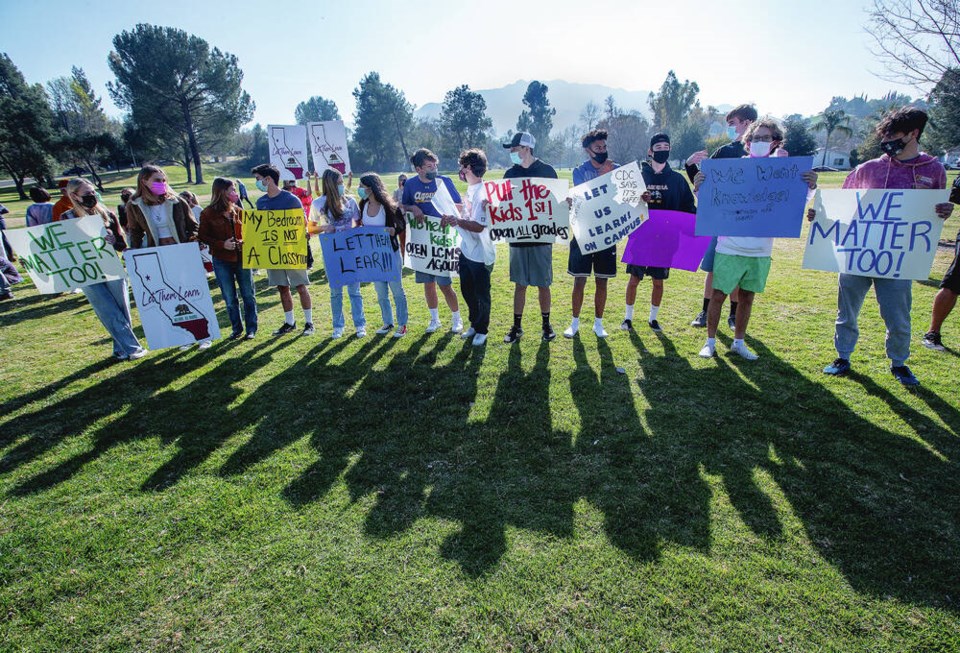There is a longstanding environmental adage that we do not inherit the Earth from our parents, but borrow it from our children.
It’s a fine sentiment, and the right principle, if only we lived by it. But we do not. Which is why I was so pleased to see that the UN secretary-general’s 2021 report Our Common Agenda has “a new focus on the world’s young people, and future generations.”
As an accompanying report put it, this means thinking about the needs of “the next generation — nearly half the world’s population who are under the age of 30 — and … future generations — the 10 billion people who are yet to be born this century.”
That report, Our Future Agenda, authored by eight UN Foundation Next Generation Fellows aged 19-30, is itself an indication of UN Secretary-General Antonio Guterres’ commitment to young people.
Guterres cautions that “unless we change course, we could bequeath to our children and their children a barely habitable world,” adding that they “will inherit the consequences of our decisions — but are barely represented at the global table of decisions.”
So he proposes a number of changes at the UN that will strengthen its focus on the future.
Now, UN reform may seem a bit arcane, but at a time of unsettling global challenges and instability, we desperately need a better-functioning UN to help the world come together to address these major challenges, both for now and for the future.
Guterres proposes the creation of a Special Envoy for Future Generations “to give weight to the interests of those who will be born over the coming century.”
He also proposes a new United Nations Youth Office to “upgrade engagement with young people across all our work, so that today’s young women and men can be designers of their own future.”
The authors of Our Future Agenda have their own ideas for how to address “crises that we did not cause.” Their New Deal for a New Generation has three pillars: the right to learn, “where we learn what we need to thrive”; the future of work — “a world where we find secure and meaningful work”; and saving our planet — “a world where we respect our shared home.”
Their aim is to “unleash a new generation” by, among other things, engaging young people as designers of a sustainable future and supporting youth-led movements and civic education to strengthen democracy. They also propose actions to deepen the engagement of the next generations in the work of the UN. These include an annual High-Level Meeting for Young People, a Global Network of Youth Envoys and a Contract for the Future setting out obligations to future generations.
That latter idea is an important part of Guterres’ recommendations — he proposes the UN adopt a Declaration on Future Generations. The declaration, he suggests, would “specify duties to succeeding generations and develop a mechanism to share good practices and monitor how governance systems address long-term challenges.”
He also proposes establishing “a Futures Lab that will work with governments, academia, civil society, the private sector and others, bringing together all our work around forecasting, megatrends and risks.”
He expects the Futures Lab to issue regular reports on megatrends and catastrophic risks.
But he also recognizes that this will not work without some high-level buy-in and direction. So he proposes re-purposing a currently dormant body, the Trusteeship Council — originally set up to supervise the administration of International Trust Territories — “to make it into a deliberative platform on behalf of succeeding generations.”
A key step in turning these ideas into reality, Guterres proposes, is a Summit of the Future. Now scheduled for September 2024, the summit is where the world would come together “to forge a new global consensus on what our future should look like, and how we can secure it.”
For all our sakes, but especially for the sake of today’s young people and future generations, we must all hope there is enough goodwill, common sense, and yes, even wisdom to bring Guterres’ plans to fruition.
For our part, we need to let the Canadian government know that this is a priority initiative that they need to get behind.
Dr. Trevor Hancock is a retired professor and senior scholar at the University of Victoria’s School of Public Health and Social Policy.



